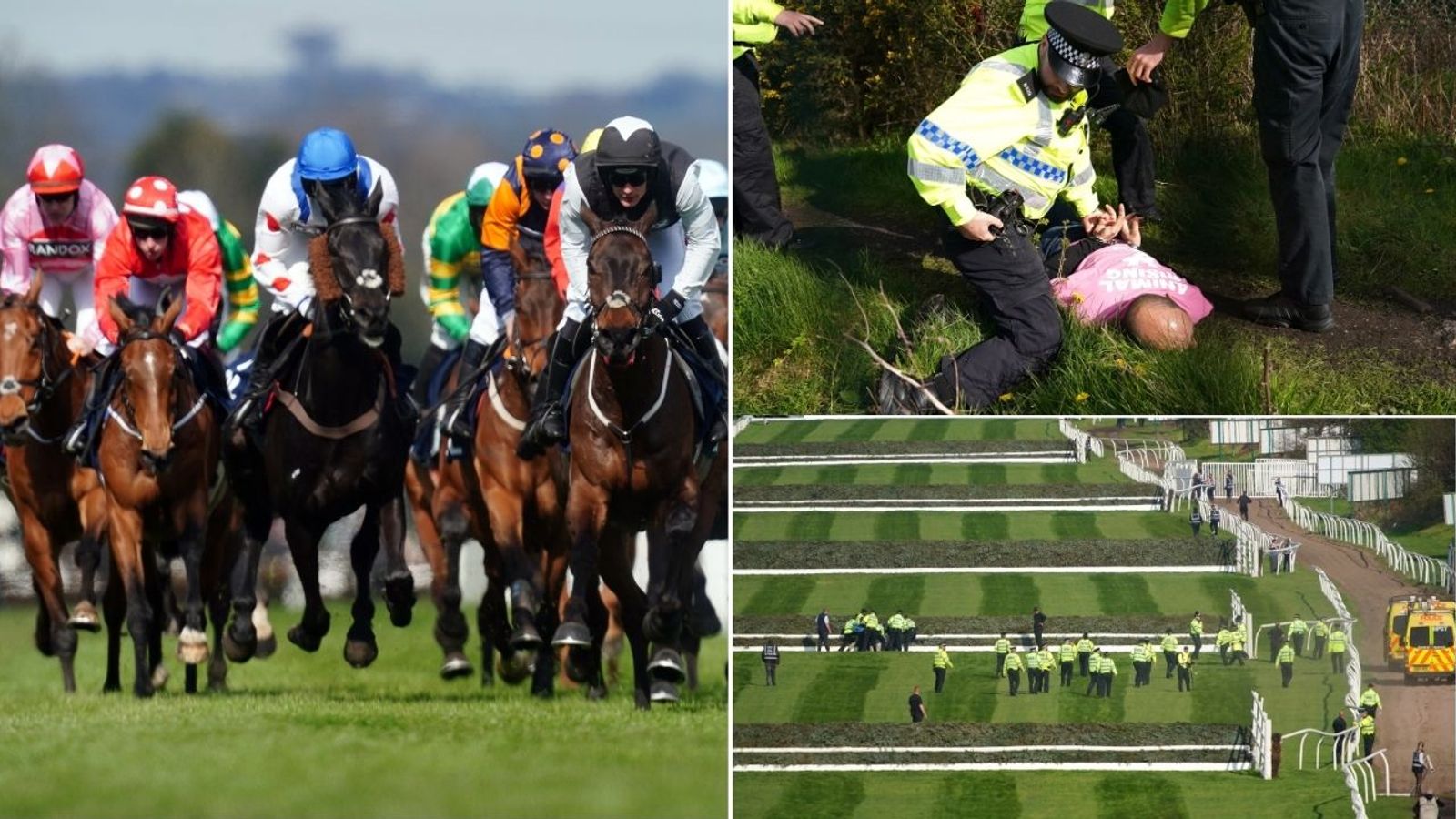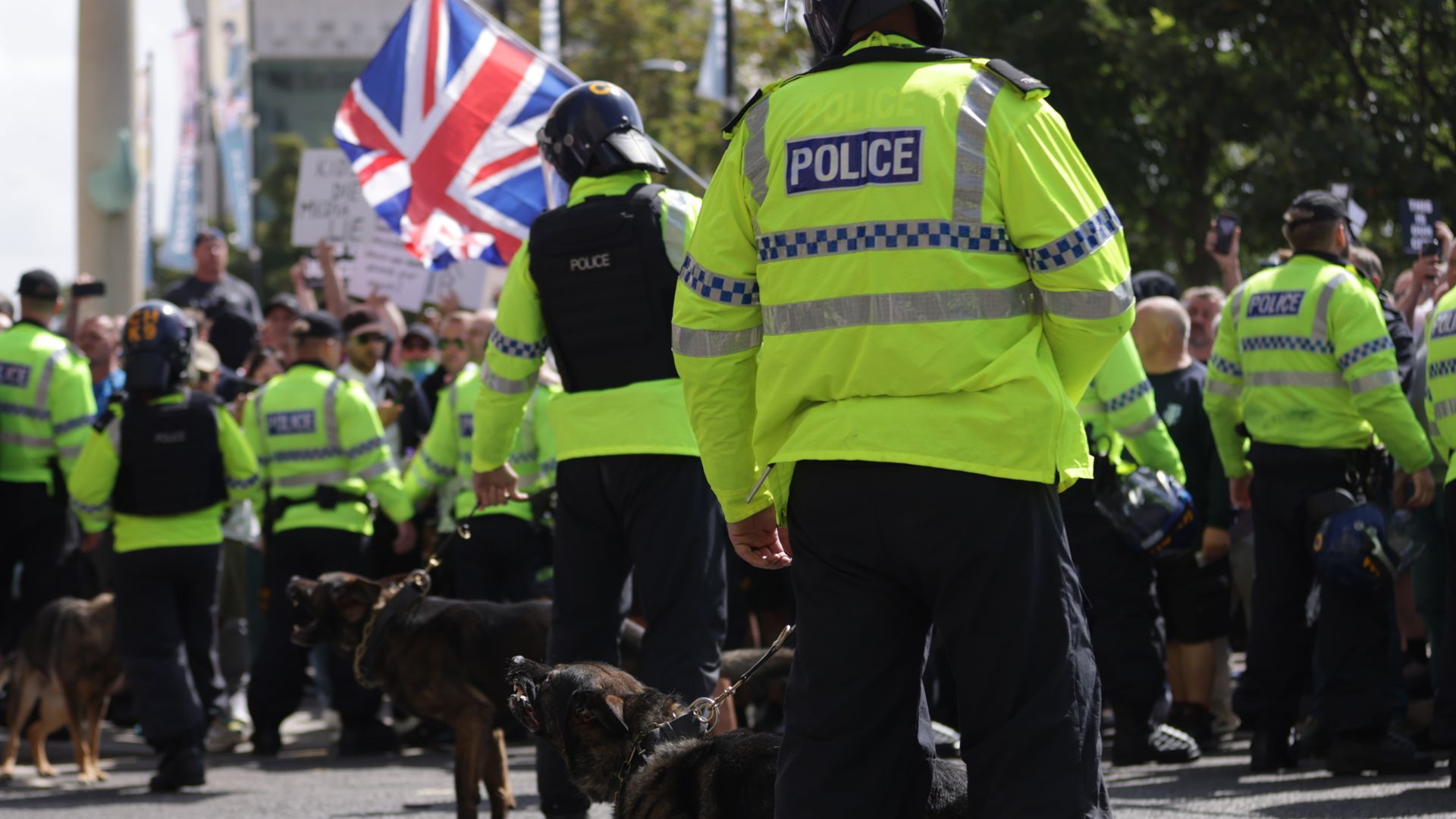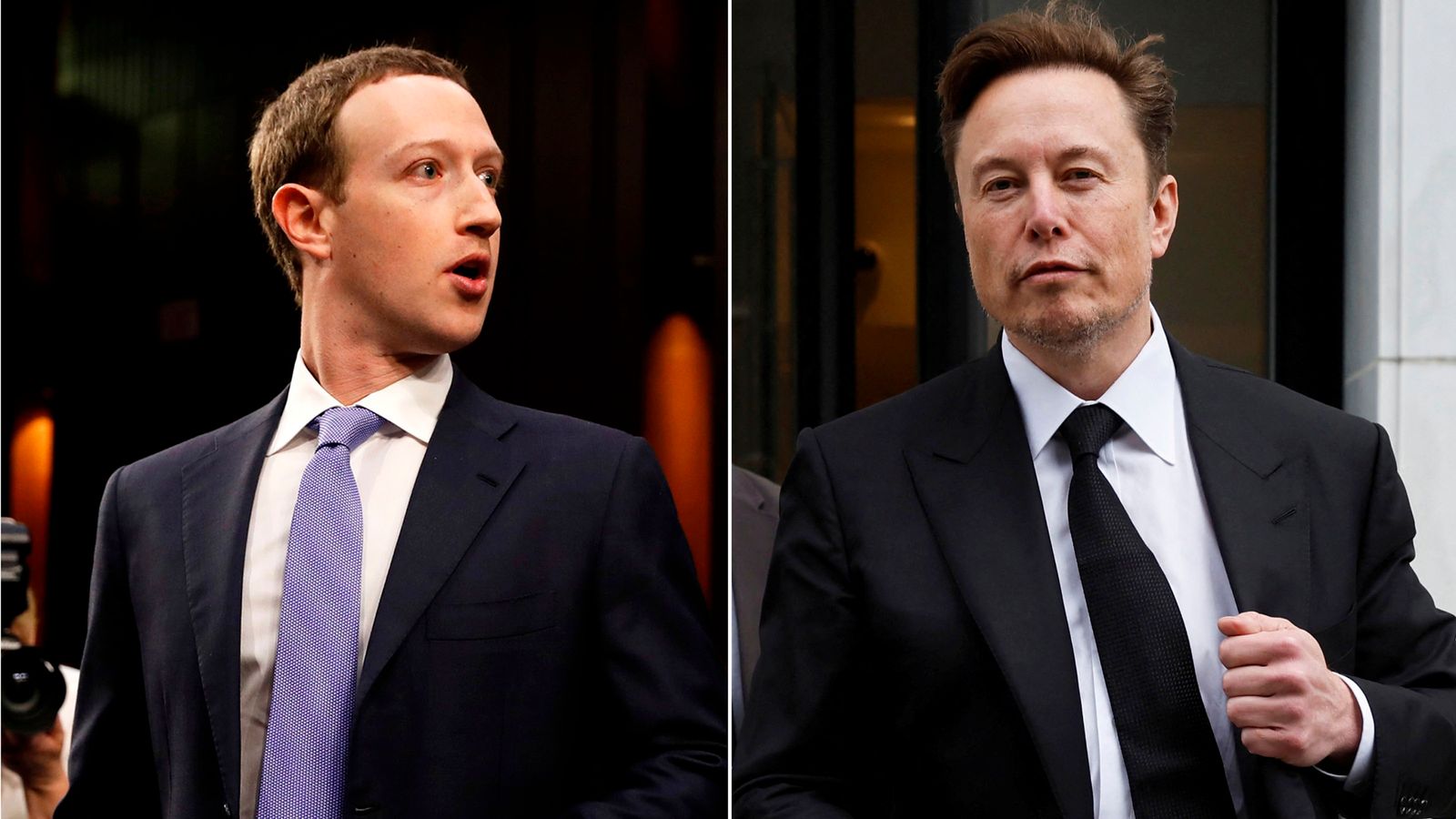Animal rights campaigners are calling for jump racing to be banned after three horses died at Aintree – with one suffering a broken neck during the Grand National.
Protesters had tried and failed to stop yesterday’s race from going ahead, and a total of 118 people were arrested.
Animal Aid says action must be taken to prevent the “brutal horrors” at Aintree Racecourse from happening again.
Please use Chrome browser for a more accessible video player
Dene Stansall, the campaign group’s horse racing consultant, said: “Innocent racehorses’ lives taken from them in the name of entertainment and gambling.
“Aintree, the worst of all racecourses, is a disgrace and the Jockey Club and British racing should hang their hands in utter shame at what we have seen over the past three days.”
The chief executive of the British Horseracing Authority – Julie Harrington – said the sporting body works “tirelessly” to improve safety records and reduce risk.
Offering her condolences to those linked to the horses who died this week, she added: “Every incident is reviewed by the BHA alongside the racecourse and other bodies.
Grand National: Animal Rising protesters say they’ll try to stop race from going ahead
“As a sport, we have for years shown great determination and commitment to improve welfare standards by taking measured scientific, evidence-based, regulatory and education-based steps.”
Read more:
Opinion – ‘I loved the Grand National until I saw what I saw’
But given 62 horses have died at the Aintree Festival since 2000 – with 16 killed in the Grand National – critics argue that the safety measures in place don’t go far enough.
The League Against Cruel Sports also wants whips to be banned because they push horses beyond what they can safely do, and says this weekend’s events show change is needed.
Be the first to get Breaking News
Install the Sky News app for free
Spokesperson Emma Judd said: “One death is too many. Animal welfare needs to be put before gambling profits and entertainment, and steps need to be taken to end this carnage which is occurring year after year.”
She went on to call for an independent regulator that prioritises horse welfare.
Other animal welfare groups – including Peta UK – described the Grand National race as “one of the longest and most hazardous in the world”.
It is now urging the public to put pressure on the event’s sponsors so they withdraw financial support.
In a statement, Peta UK said notorious fences such as the Chair, Becher’s Brook and the Canal Turn cause “horrific and often fatal injuries” almost every year.
“Every time horses are forced to jump over these excessively high obstacles, it puts tremendous pressure on their slender front legs and they risk broken legs, necks and backs,” it added.
“Even those who make it off the track alive are likely to suffer. Thousands of horses – including ‘spent’ thoroughbreds and those who don’t ‘make the grade’ – are discarded like used betting slips every year.”
Envoye Special died on Thursday, followed by Dark Raven in an early race on Saturday. Hill Sixteen was put down after suffering serious injuries during the flagship event.
Dickon White, who runs Aintree Racecourse, said: “Hill Sixteen was immediately attended by expert veterinary professionals during the Grand National, but sadly sustained a fatal injury. Our heartfelt condolences are with his connections.”
Animal Rising – which spearheaded Saturday’s protest – has suggested that its work is only beginning, and that it intends to start an “unignorable national conversation”.
About 15 of its demonstrators managed to delay the start of the race by 12 minutes, while others caused extensive traffic by gluing themselves to the M57 motorway.
Some racegoers have said they disagree with the group’s tactics.
Alice Pocock, from Berkshire, said: “Every horse here is born and bred to race. I think the protesters are putting themselves at harm and they don’t understand the racing industry.”








